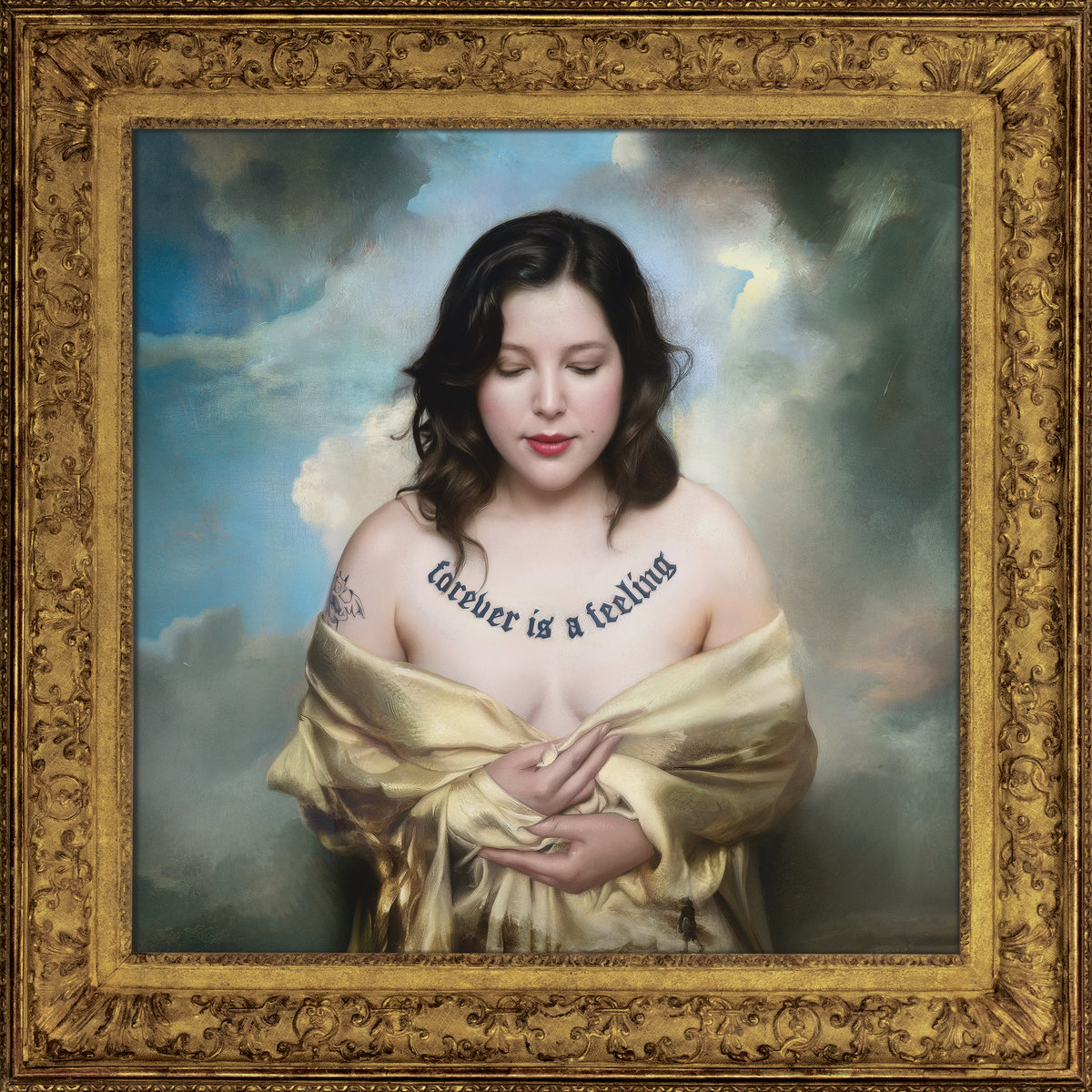You may know of Lucy Dacus from her TikTok famous song “Night Shift.” You may know her as a member of the Grammy-winning indie rock supergroup Boygenius. You may even know her music from Spotify-made “sad girl indie” mixes. Despite what you may know of her, if anything, “Forever is a Feeling” is not that.
Although it still has the essence of her music – her clever, heart-wrenching lyricism and deep, velvet voice – Dacus breaks out of the genre she’s been pigeonholed into, creating something that feels simultaneously novel and timeless.
The album begins with “Calliope Prelude,” a baroque, violin-centered instrumental likely alluding to Calliope, the muse of eloquence and epic poetry in Greek mythology. This is an apt name for the opening track, considering how multiple of the following songs are centered around one muse: Julien Baker.
Dacus and Baker have a long history, beginning in 2016 when they first met at a Baker’s show. Dacus was reading “The Portrait of a Lady” by Henry James and ripped out the blank back page, writing her email on it for Baker.
Since then, they developed crushes on each other, formed a supergroup, moved in together and in March, officially confirmed their romantic relationship. The lead-up to them getting together is detailed in the second song, “Big Deal.”
Dacus’ voice, warm and smooth like honeyed tea, flows with muted drum beats and guitar strums into “Big Deal,” her voice soft and understated, as if she’s tentatively sharing a secret with the listener. Dacus croons about how it “could never work,” how Baker has a girlfriend and is “gonna marry her,” and yet she still proclaims fervently in the chorus that Baker is “a big deal.” It’s an especially yearn-y song, made much more satisfying by knowing the current status of their relationship.
The next song “Ankles” is the lead single of the album, with a high-budget music video to match. Dacus plays the subject of a painting who escapes from her frame and is chased around Paris by her bodyguard, played by Havana Rose Liu, known for her role as Isabel in the movie “Bottoms.”
Strings take the lead like many tracks on side A of the album, initially elegant but becoming immediately sultry at the pre-chorus of “So bite me on the shoulder / Pull my hair.” The chorus is playful and full of innuendos, while the verses boast more allusions to Greek mythology, specifically the three Fates.
The following single released, “Limerence,” opens with an elegant piano that feels like it should be played in an opulent ballroom, contrasting with the jarringly modern lyrics about smoking weed, playing Grand Theft Auto and eating popcorn.
The word “limerence” means intense feelings of want and yearning for another person, contrasting with later lyrics about the complicated dilemma of wanting to dump someone. “I’m thinking about / Breaking your heart someday soon / And if I do / I’ll be breaking mine too,” Dacus sings in her dreamy, dulcet voice.
There’s a quick switch in genre with insidious, fuzzy guitars in “Talk,” a song about a relationship that’s run its course. Each stanza of the chorus sucks the instrumental out like a vacuum, causing the listener to hang onto each of Dacus’ like they’re dangling over a chasm.
“Your body loomin’ like a specter, hungry as a scythe / If you come reapin’, I’ll come runnin’, I still know what you like,” Dacus sings in the second verse, the instruments that accompany it pushing in on themselves like they’re in a trash compactor. The bridge amps up the distortion with thudding, foreboding synths, warbling vocals and guitar chords that ring in your ears like the itchy-hot pain of a fist to the nose.
After many more songs about love, lust and heartbreak, the final track, “Lost Time,” acts as a conclusion. “Nothing lasts forever but let’s see how far we get / So when it comes my turn to lose you, I’ll have made the most of it” is the thesis of the album and the album title — the idea of wanting to be with someone for forever but knowing that’s unrealistic, so wanting to be with them for as long as possible. The album ends with a demo of Dacus singing “Lost Time,” signifying how the past, the present and the future aren’t all as different as they seem.
























